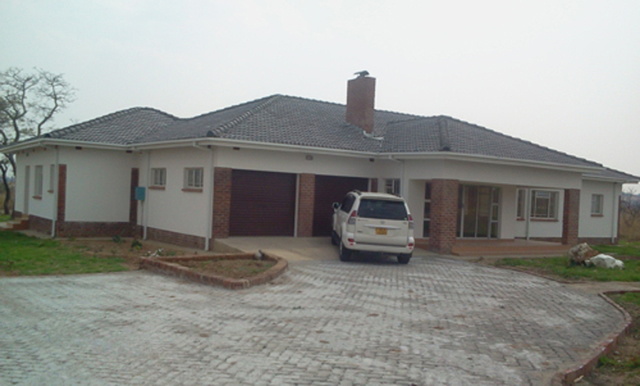Pearl Properties in standstill position

Pearl Properties posted a set of financials largely showing a standstill position for the year ended December 31 2015 when compared to 2014. Revenue slipped 3,53percent to $8,4 million, weighed in the main by declining occupancy levels and pressure on rentals especially for the retail segment (both CBD and Suburban) of the property portfolio. This was aggravated by property expenses which soared 19,62 percent to $1,13m on the back of increasing voids and the accompanying costs of maintaining vacant buildings.
Net property income resultantly declined 2,73 percent to $8,4 million translating to a rental yield of 7,05 percent, down from 7,50 percent for 2014. Pearl had revised downwards the value of its investment portfolio by 4,10 percent to $135,02 million, which was, however, not enough shoring up rental yields.
Office parks
These remain the biggest segment contributing 35 percent to the property portfolio and for 2015 its contribution to revenue, at 35 percent matched its size.
Performance was strong with occupancy of 96 percent and rentals of $9,95/m2 up 2,05percent compared to 2014. Management attributed this to very strong demand for one of its office parks where UN agencies are keen to take up space. Further to that, corporates in Zimbabwe have shown preference for out of town office space, hence this stellar performance is likely to be sustained.
CBD offices
CBD offices remain the problem area with very low occupancies of 50,35 percent, (down 3,67percent) and increasing pressure on rentals that averaged $9,75/m2 (down 0,61 percent). The huge vacancies imply high operating costs which in turn translates to lower rental yields.
CBD offices have thus been
the biggest driver to the decline in yields and management is looking at reconfiguring CBD office space
to smaller suites that can suit SMEs in a bid to mitigate this haemorrhage.
Expectations are, however, that this segment can only reawaken once the economic fortunes of the country as a whole improve, businesses become profitable and demand for office space soars.
Industrial
The Industrial segment performed reasonably well with occupancies remaining high at 92,97 percent albeit having declined marginally from 93,51 percent in 2014. The albatross for this segment is the low rentals which are the lowest in the portfolio.
For 2015, however, rentals did improve, adding 8,97 percent to $3,28/m2 and providing 16 percent of group revenue. The sector is yet another GDP play whose fortunes are inextricably tied to general economic conditions in Zimbabwe.
CBD Retail
CBD retail suffered from vacations in 2015 with occupancies ending the year 16,79 percent down at 77,48 percent and rentals similarly declining to $9,14/m2 (down 4,09 percent). Like CBD offices, the segment is in need of reconfiguration of lettable space to make it palatable especially to small businesses.
Management is alive to this fact and intends to pursue this strategy in the event that tenants who can take whole units are not secured. CBD retails has room for improvement if such innovations are undertaken.
Suburban Retail
Deflationary pressures that weighed down on retail sales translated to a decline in rentals for the segment by 6.83percent to $9,27 despite occupancy remaining very high at 99,49 percent.
This state of affairs is unlikely to change in 2016 and the risk remain high that rental collections will once more decline. Like all the units that are suffering, a turn in general economic fortunes for the country is the only viable stimulant for improvement in the segment.
Analysts Comment
Pearl appears to be operating in sustenance mode with management not showing willingness to be adventurous and chase returns for shareholders. There are no new projects serve for the mooted 4th Street which appears further down the pipeline with each briefing.
Golden Stairs also continues to draw cash from the business. Returning some cash to shareholders is probably good in light of the above, but a dividend yield of 2.68percent, is not enough incentive for an investor to leave capital with Pearl to manage.
Pearl has also changed strategy midway to letting properties that it built with the intention of selling. This shows how tough the market is becoming, and has also provided Pearl with a blue print of what doesn’t work in this environment – which probably explains the hesitance to invest.
A neutral stance does preserve capital, but capital follows real return and without taking risks, there remains little incentive for investors in the Pearl share. – Wires.










Comments